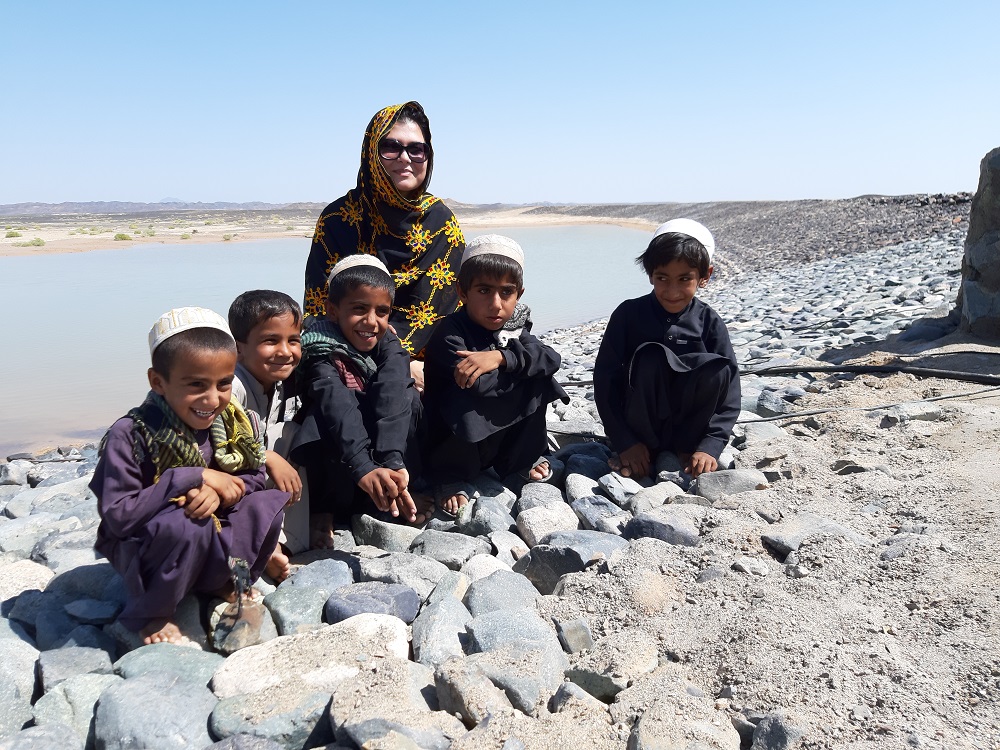Writing from Pakistan, Islamic Relief’s Hiba Siddiqui reflects on a holy month that is changed, but not quelled, by the outbreak of coronavirus.
Ramadan and I have been friends since childhood! From a young age, my ama (mother) would always let me stay up well into the night to fold samosas and make kheer (rice pudding) for the next day.
For me, Ramadan means sleepy eyes, happy smiles, and a month of eating with my family and praying tarawih with friends. More than anything, Ramadan means coming home – back to my people, back to my ama’s kitchen, and back to the One who sustains me.
In Pakistan we celebrate Ramadan as a festival and special arrangements are made not just for the prayers but also for the two special meals of the day, iftar and sehri. Moon sighting is always an occasion of joy. As soon as the moon has been sighted, we make dua and share best wishes with our loved ones. The phone starts beeping and our inboxes and Whatsapp chats are flooded with messages of Ramadan Mubarak!
Qur’an and cooking
Every morning, wholesome and filling food is cooked for sehri. Popular entrees include paratha, milk tea, halwa puri, puri channay (chickpeas) and yogurt. Several roadside cafés and restaurants remain open for sehri.
My family and I aim to finish reciting the Qur’an once this month. From the first day we begin reciting Qur’an as the only way to complete it within this month is total commitment and discipline!
In Pakistan our TV screens are taken over by multiple Ramadan transmissions airing religious discussions, question/answers pertaining to religious teachings, recitation of a naat or a dua, and cooking shows that have us Pakistanis glued to our screens.

Sharing food and joy
While walking around the city during the day you can smell samosas and pakoras frying, one can see long queues at the bakeries where people are lining up to buy delicious iftar items. Sharing food is a big ritual in my country; in the residential areas you can spot trays filled with delicious iftar items being carried to neighbours.
But perhaps the most beautiful sight is of our roadside iftar that feeds thousands during Ramadan!
As the sun begins to fade, one can see volunteers fixing traditional delicacies and drinks on tables at different points. Large plastic mats are rolled out on uneven footpaths and filled with food.
Drivers pull over swiftly and join people of all ages already gathered around the tables or occupying the plastic mats. As the call for maghrib (sunset) prayer echoes from mosques, they break their fast.
Some groups of volunteers hand out cups of red sharbat (drink), to-go iftar items and water bottles to passers-by in their vehicles.
Every Ramadan, countless stalls are set up at the corners of city roads by local residents, serving free food and drinks for the entire month to homeless people, vendors, rickshaw and taxi drivers, labourers, beggars and even those who do not fast.
This tradition over the years has been adopted by different cities, where roadside iftar stalls feed thousands of people.
Even the country’s small Sikh community has been hosting a traditional dastarkhwan (spread) for Muslims in Peshawar city for many years.
Drawing closer to Allah
And then come the last 10 nights. These are the most physically exhausting days of Ramadan but we are emotionally charged up, looking forward to Eid but also melancholic about Ramadan ending, not having done everything we had hoped for. At least that’s how I feel!
During these nights people have different ways of connecting with Allah; for some its prayer – they love saying the nawafil prayers at the mosque. For some it’s reading the Qur’an, reciting particular surahs and listening to qirats.
For some like me it’s dua, sitting on the prayer mat with my list of duas, hands raised in supplication. I find the most comfort in saying my duas, while gazing at the pictures of the Kaabah on my prayer mat and tracing them. Dua is when I feel most worshipful and closest to the sense of spirituality; it makes me feel heart tremblingly closest to my Lord.
Apart from the usual acts of worship, the most important to me is service to humanity. Being in the humanitarian sector, I feel a sense of pride at being in a position to work for those less fortunate.
Spreading love, not the virus
This Ramadan will be different. With the outbreak of coronavirus we are still in lockdown, and the most vulnerable people are dealing with loss of employment and lack of food. It will be challenging for people in Pakistan especially for the underprivileged.
Ramadan will also be different for us at Islamic Relief too. We will not be able to directly interact with our communities and we will be providing them with aid in a different way.
We distribute food packs among the less fortunate every year; however, this year our distributions will be taking place in limited areas, among families of the orphans we sponsor. We have recently launched our Ramadan campaign, ‘Distant but not Disconnected’, which aims to motivate people to spread generosity. The campaign shares our journey of reaching hard to reach families this Ramadan and highlights how collective efforts and sharing can reduce the impact of tough times ahead.
This Ramadan will have a far reaching impact on our people, and one way to fight corona during the holy month is through spreading generosity instead of the virus.
Please support our Ramadan Appeal. Your generosity will help us come together as one community and save lives together.










